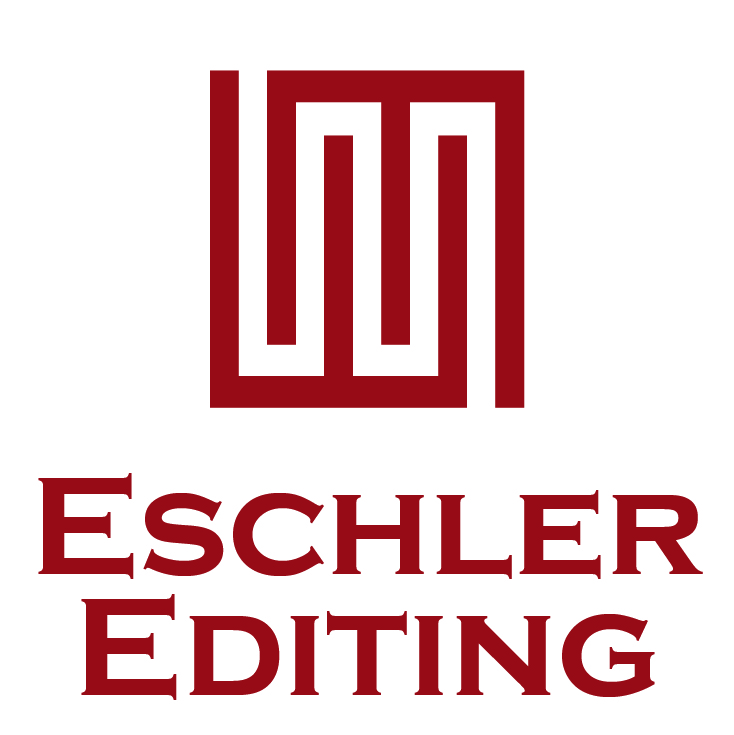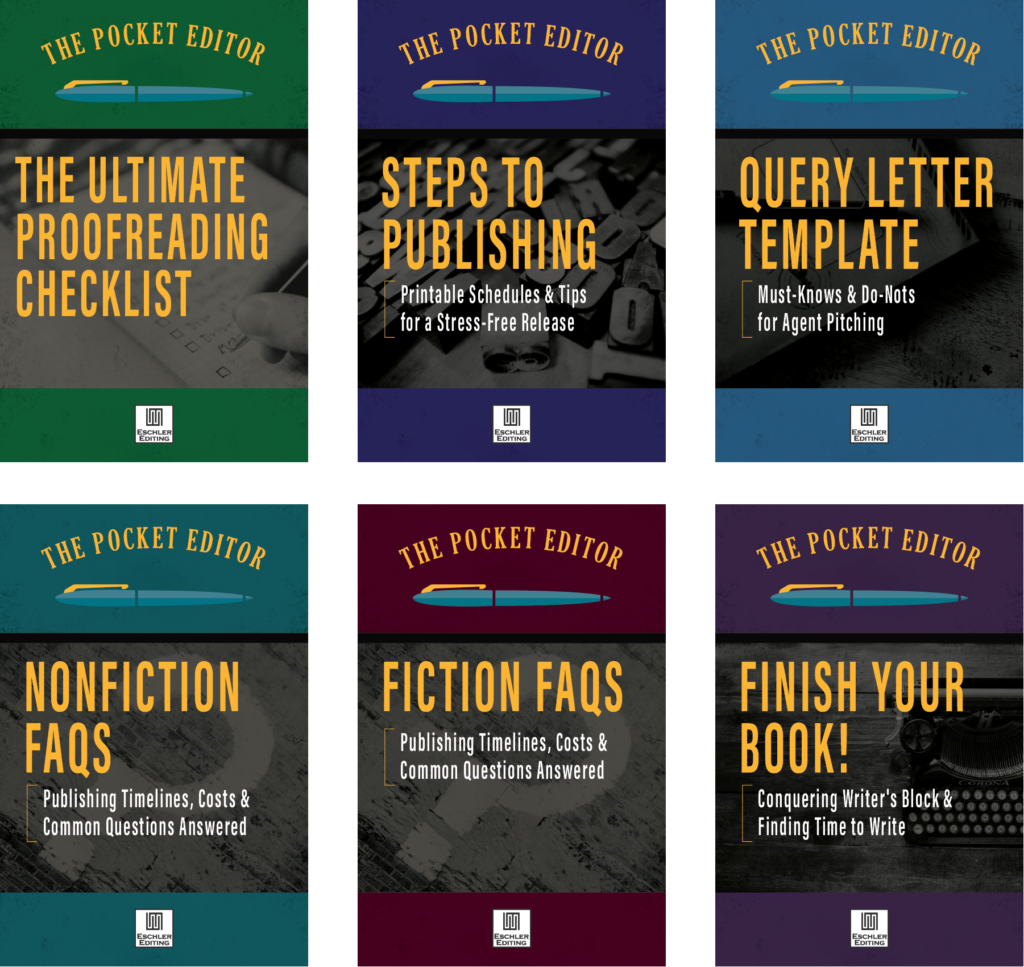Avoid a Big Newbie Mistake — Learn What an Editor Should Do Before Your Books Go Public
 By Angela Eschler and Kat Gille
You write to communicate to the hearts and minds of others what’s burning inside you—And we edit to let the fire show through the smoke.
By Angela Eschler and Kat Gille
You write to communicate to the hearts and minds of others what’s burning inside you—And we edit to let the fire show through the smoke.—Arthur Plotnik, The Elements of Editing
What is one of the biggest mistakes new authors make before sending their books into the world? Not hiring a professional editor. I know, I know . . . sounds salesy.
But hold on a minute. This isn’t a sales pitch. It’s a mini course in what makes a book sink or swim—and it’s knowledge you’ll want on your side before sticking your neck out and taking your book public. Along with revealing what behind-the-scenes market forces could affect your sales—or your chances of getting an agent—we’re also going to tell you how to vet an editor (to ensure they can manage those forces). No one wants to make a financial mistake when trying to self-publish, and there’s a reason most writers don’t quit their day jobs while hunting for agents. We get it. Your budget and dreams sometimes conflict. So we hope this article gives you insight into how to make the most of your pennies.
There are many reasons to enlist the services of a professional editor before producing your self-published book or trying to secure an agent. The most basic reason is to ensure your writing is good enough, your subject interesting enough, and your materials organized enough to attract the readers you want. You don’t often get more than one chance to catch a reader (be they a customer or an agent) with the same work, so it’s best to make sure you’re putting your best foot forward the first time.
But how do you pick the right one? How do you know who’s selling themselves as an editor—when they’re really just an English major (or are really faking it)—and who’s the real deal? As author Dave Bricker put it, you’re looking for someone who’s not only spent years studying the finer points of language, grammar, punctuation, and typography (hyphens, en dashes), but has “the ability to read a narrative deeply, find inconsistencies, recognize overused patterns, understand . . . storytelling, and convey these to an author as [a] useful, sometimes hard-hitting but never insulting critique. This kind of professional is difficult to come by—this editor understands both the left-brained, technical points of fine writing and the right-brained art of communicating stories, ideas, emotions, experiences, and streams of consciousness and perspective for which there are no names.”*
A professional editor who fits those qualifications will be able to help with the following:
1. Market awareness
- Knowing when you are better off traditionally publishing vs. self-publishing.
- Understanding what makes for a high-concept (marketable) story and a good story premise (or hook), or what makes for compelling nonfiction that is correctly positioned to reach the ideal audience. This includes knowing how to hook an audience with your first pages so you don’t lose the chance to share your story or ideas.
- Fixing clichés (including content ones: openings, plotlines, resolutions, phrases, plot strategies, characterization, etc.). For example, a Writer’s Digest article listed some beginnings NEVER to use in fiction because agents and in-house editors are sick of them. A professional editor would be tuned in to this type of burnout and therefore warn you in time.
- What’s hot in the market and what’s not. Professional editors are more familiar with what will sell in the publishing world and have more insight into the producing end of the market. They can tell you when to hold off on this book and dive in with your other idea first.
- What publishers are looking for . . . or what they absolutely can’t stand. Most authors are big readers, but they’re usually accustomed to finished, edited work and don’t read nearly the amount of raw material that editors at publishing houses have to read. There are elements of story and writing (or book ideas) that an author-hopeful may think competitive because they’ve never seen it on the shelves but that will mark the author as an amateur—and usually mark them for nonconsideration. Professional editors will be able to stave off the rejection letters by cuing you into what’s really out there.
- A professional who has worked in-house at a traditional publisher will also be able to give you feedback on many other parts of the publishing process, including whether your cover will sink or swim, whether your query letter or proposal will snag an agent, whether your website is going to appeal to your target audience, which promotion strategies to explore first, and can give you tips on many other issues relating to the publishing-industry and publishing-business.
2. Audience awareness
Are you looking to impress? Inform? Entertain? Will your audience know the things you know? Does your audience even exist? You need someone who knows how to organize your content for the market you want to hit.
Example: One of us worked with an author seeking to market an LDS novel through Deseret Book, but the plot involved a teenaged couple that falls in and out of love with each other, and the story is told from the young man’s perspective. Problem: Deseret Book’s fiction clientele is mostly adult women—teenage boys, the main implied audience for such a book, simply do not go into Deseret Book stores to buy fiction. Teenagers in general are more interested in digital media than print media these days, and of those who read printed books, they wouldn’t be caught dead with a romance. (If you’re thinking of an exception you know, ask yourself this: Can you make a good return on investment selling to 30 people? A publisher won’t pick up a book unless they know they can sell 3000 to 10, 000 copies.) There’s just not a market for that kind of book in that sales context.
3. Reader awareness
This may sound like the same thing as audience awareness, but what we’re talking about is understanding what an individual reader will likely experience when reading your book.
- Which parts will drag?
- Which ones will be confusing?
- Which explanations will need more detail?
A writer almost always needs an outside perspective to give them insight into what’s not working.
4. Language and technical expertise
Of course, the main thing people think of editors for is language expertise and the polish that makes you look like a professional. Publishing budgets are getting smaller and competition at publishing houses is getting stiffer, meaning that fewer companies are willing to mentor inexperienced authors. Having a professional on your side who is familiar with grammar, usage, and style guides will give you a presentation edge.
- Do I use that or which in this case? How am I supposed to use a semicolon?
- Ohmigosh, I had no idea that putting that comma there made my sentence mean that!
- Now how does APA style require me to list the references I’ve used?
Download our proofreading checklist—a secret weapon our editors use in-house.
5. Knowing when to do some research
Some parts of your manuscript can be completely fictional. Many things, however, are based on reality and therefore have the potential of making your manuscript less credible if you fail to research how such things function in the real world.
- Did you know that the town of Eagar, Arizona, does not spell its name like the word eager?
- Did you know that not even a HALO parachuting maneuver would attempt to deploy a parachute at less than 500 feet?
- Did you know that coders during the Second World War wrote their cipher keys on silk handkerchiefs that they could then unravel to erase the codes? (Not what you have them doing?)
Get things like this wrong and you’re likely to annoy a knowledgeable reader (and thus lose that word-of-mouth promotion), embarrass yourself, or receive poor reviews.
6. Avoiding other pitfalls that will alienate readers
- Did you know that some of the wording in your manuscript shows bias against people who did not go to college?
- Did you realize that you’re assuming your readers grew up in a home with a yard to be mowed? They aren’t understanding the implications in this scene because their experience isn’t the same.
- Your story is based on events that happened in your family several decades ago, but you want to modernize it for today’s hot YA and middle grade markets; well, you’re going to have to make some changes—like that children these days aren’t allowed to sit in the front seat of a car because of airbags; so current youth readers won’t identify with fighting over who gets to sit in the front seat. This example may seem obvious, but dozens of times a day, editors catch things that don’t make sense to the target audience, things that could very well get your book put back on the slush pile since only-the-most savvy-can-pass is what drives most publishers and agents.
7. Noticing your weaknesses/Achilles’ heel
Some things aren’t going to be obvious to you. Some things aren’t going to be obvious to people who know you—the loved ones you’re having proof your manuscript. They’ll see those potential writing Achilles’ heels as part of who you are rather than as things you’ll need to change in order to be successful in publishing. They won’t know the ramifications of failing to address your weaknesses.
8. Being honest with you about what you and your manuscript need
- Friends will hesitate to hurt your feelings and feel the need to sugarcoat things to some extent. Professional editors are less shy about telling you what works and what doesn’t and where your skills are versus where they need to be.
- Friends might have strong feelings about certain things and not realize that their opinions are not necessarily indicative of the market you’re trying to tap. A professional editor can tell you where you stand against the competition.
9. Giving you the professional edge
Let’s be honest: Your unsolicited manuscript isn’t going to be read all the way through before a decision is made. In fact, it may not be read at all. Your cover letter/query letter/or whatever else it is that the publisher you’re courting has asked you to submit may be the only thing of yours anyone at the publishing house ever reads. The same goes for readers of the self-publishing market. With literally hundreds of thousands of titles to choose from, you’ve got limited time, and chances, to impress. You’ve got to present yourself and your work as worthy of their valuable time and attention. A professional editor provides that polish.
These days publishers don’t have the time or resources to mentor novice authors who need step-by-step guidance. If you send a poorly written or poorly edited manuscript into a publisher or agent today, the competition will ensure that it never sees the light of day. Even with self-publishing and the ebook revolution, a poorly written book will still die in the arms of uninterested readers. So you need to make sure you mark yourself as a professional from the start; your manuscript must be evidence of your dedication to do what it takes to produce quality material for publication.
10. Help you make contacts in the publishing world, potentially with the right agent or publisher
Establishing a relationship with professional editors can give you access to lots of information about how the business works and inform you of THE places to be or people to network with.
Lastly, if you want an idea of what such services are actually worth—given the broad array of pricing options out there—check out *Dave Bricker’s article: “What’s a Professional Editor Worth.”
Action Step?
Treat yourself to some free sample editing from several editors you are considering. You should be able to tell very quickly who is really in tune with what you’re trying to do with your story, how to make it reach your audience, and how to make sure your execution fulfills those goals. Even if your book isn’t ready, you might save yourself some valuable writing time by getting the info you need before you write your entire book—and definitely before seeking publication.
Lastly, you can download our proofreading checklist—a secret weapon our editors use in-house.
Have you had experience with an editor? Learned the difference between a professional and someone who isn’t quite there? Please don’t name names, but tell us your experiences in seeing how editing makes a difference with your writing goals. Leave a comment below.




0 Comments